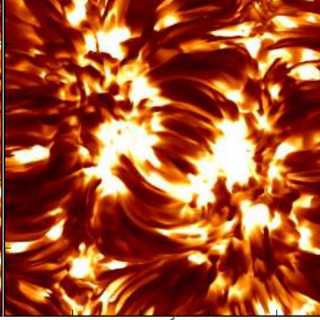Asensio Ramos, A.; Petit, P.
Referencia bibliográfica
Astronomy and Astrophysics, Volume 583, id.A51, 8 pp.
Fecha de publicación:
11
2015
Revista
Número de citas
10
Número de citas referidas
10
Descripción
Aims: We develop a fully Bayesian least squares deconvolution
(LSD) that can be applied to the reliable detection of magnetic signals
in noise-limited stellar spectropolarimetric observations using
multiline techniques. Methods: We consider LSD under the Bayesian
framework and we introduce a flexible Gaussian process (GP) prior for
the LSD profile. This prior allows the result to automatically adapt to
the presence of signal. We exploit several linear algebra identities to
accelerate the calculations. The final algorithm can deal with thousands
of spectral lines in a few seconds. Results: We demonstrate the
reliability of the method with synthetic experiments and we apply it to
real spectropolarimetric observations of magnetic stars. We are able to
recover the magnetic signals using a small number of spectral lines,
together with the uncertainty at each velocity bin. This allows the user
to consider if the detected signal is reliable. The code to compute the
Bayesian LSD profile is freely available.
Proyectos relacionados

Magnetismo, Polarización y Transferencia Radiativa en Astrofísica
Los campos magnéticos están presentes en todos los plasmas astrofísicos y controlan la mayor parte de la variabilidad que se observa en el Universo a escalas temporales intermedias. Se encuentran en estrellas, a lo largo de todo el diagrama de Hertzsprung-Russell, en galaxias, e incluso quizás en el medio intergaláctico. La polarización de la luz
Tanausú del
Pino Alemán